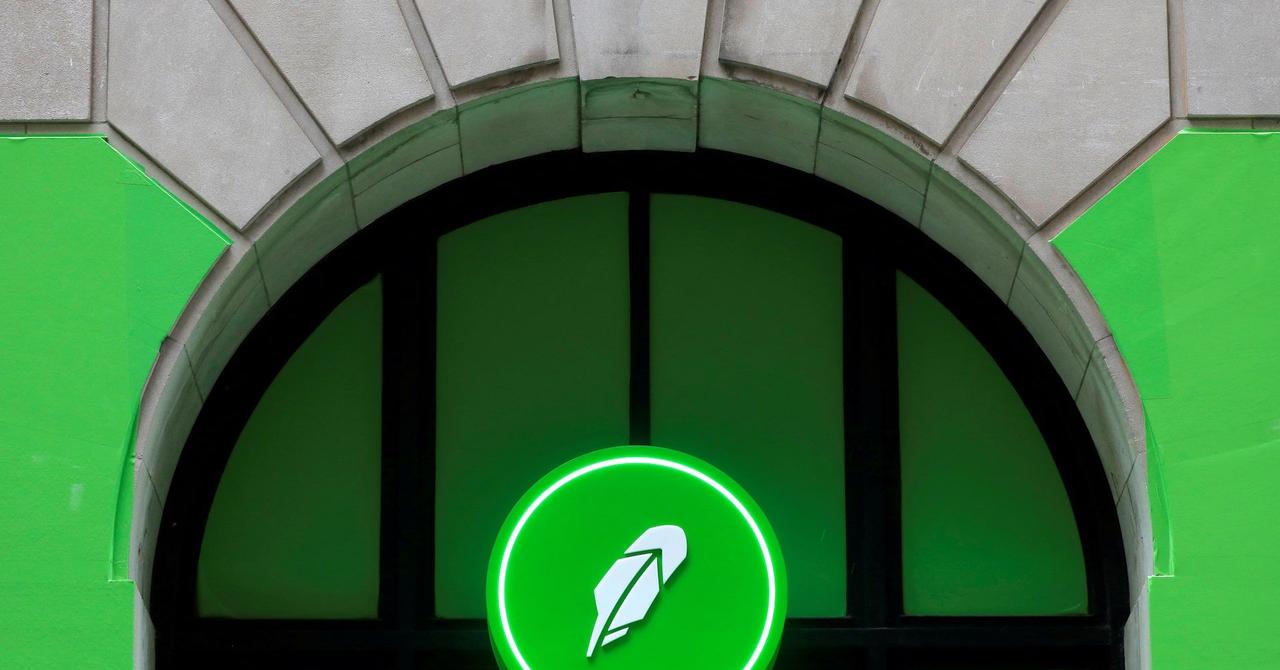OpenAI Condemns Robinhood's 'OpenAI Tokens', Sparking Debate on AI Company Equity
4 Sources
4 Sources
[1]
OpenAI condemns Robinhood's 'OpenAI tokens' | TechCrunch
OpenAI wants to make clear that Robinhood's sale of "OpenAI tokens" will not give everyday consumers equity -- or stock -- in OpenAI, the company said in a post on X from its official newsroom account. OpenAI says it does not endorse Robinhood's effort, nor was it involved in facilitating the token sale. "These 'OpenAI tokens' are not OpenAI equity," said OpenAI's newsroom account. "We did not partner with Robinhood, were not involved in this, and do not endorse it. Any transfer of OpenAI equity requires our approval -- we did not approve any transfer. Please be careful." OpenAI's statement is a response to Robinhood's announcement earlier this week that it would started selling so-called tokenized shares of OpenAI, SpaceX, and other private companies to people in the European Union. Robinhood says the launch represents an attempt to give everyday people exposure to equity in the world's most valuable private companies via blockchain. Hours after announcing these token sales, Robinhood's stock price shot to an all-time high. But stock in private companies like OpenAI and SpaceX are not available to the public. That's what makes them private. They sell shares to investors of their choosing. So OpenAI is openly disavowing Robinhood's effort. In response to OpenAI's condemnation, Robinhood spokesperson Rouky Diallo told TechCrunch that OpenAI tokens were part of a "limited" giveaway to offer retail investors indirect exposure "through Robinhood's ownership stake in a special purpose vehicle (SPV)." That suggests Robinhood owns shares of a SPV that controls a certain number of OpenAI's shares. Like the tokens, shares of SPVs are not direct ownership of shares, either. They are ownership in a vehicle that owns the shares. In one way or another, Robinhood seems to be tying the price of its new tokenized product to the OpenAI shares in that SPV. But shares prices in an SPV can also differ from prices of an actual share of stock, as well. OpenAI declined to comment further. Robinhood did not respond to TechCrunch's additional questions about its SPV. Private companies are known to push back against anything that could influence how their equity is valued. In recent months, humanoid robotics startup Figure AI sent cease-and-desist letters to two brokers running secondary markets that were marketing the company's stock. Of course, these situations are different, but most startups don't want people to believe that they've authorized share sales if they haven't.
[2]
Owning a Piece of ChatGPT Was Already Messy. Then Elon Musk Made It Weirder
OpenAI just warned investors not to fall for crypto-style tokens claiming to offer stock in the ChatGPT maker. OpenAI has a message for anyone who thinks they’re about to cash in on the AI boom by buying a new “OpenAI token†on Robinhood: Don’t. But in a chaotic turn, Elon Musk just suggested that even the company’s real equity might be an illusion. The maker of ChatGPT, in a rare public warning posted on X (formerly Twitter), disavowed any involvement with crypto-like financial products claiming to offer a piece of its business. “These â€~OpenAI tokens’ are not OpenAI equity,†the company wrote. “We did not partner with Robinhood, were not involved in this, and do not endorse it. Any transfer of OpenAI equity requires our approvalâ€"we did not approve any transfer.†The company added a clear warning: “Please be careful.†This strange situation immediately attracted the attention of Elon Musk, OpenAI's co-founder turned chief antagonist. He responded to the company's post with a blunt, explosive accusation of his own: The controversy began after Robinhood, the popular trading platform, unveiled a new product for its European customers. In a statement to Gizmodo, the company explained its move. “To cap off our recent crypto event, we announced a limited stock token giveaway on OpenAI and SpaceX to eligible European customers,†a Robinhood spokesperson said. â€These tokens give retail investors indirect exposure to private markets, opening up access, and are enabled by Robinhood’s ownership stake in a special purpose vehicle.†Robinhood used a Special Purpose Vehicle (SPV), which is essentially a separate company created to hold an investment, to buy a stake in OpenAI. It then issued its own digital tokens that represent a claim on that stake. This process, known as tokenization, aims to make illiquid assets, like a share in a private company, easy to trade. CEO Vlad Tenev elaborated on X, admitting the tokens are not a direct investment. “While it is true that they aren’t technically 'equity' (you can see the precise dynamics in our Terms for those interested), the tokens effectively give retail investors exposure to these private assets,†he explained. “Our giveaway plants a seed for something much bigger." Musk’s swipe is the latest in his long running war with the company he helped found and now openly despises. He has accused it of abandoning its nonprofit mission for profit and has even filed a lawsuit against it. But his comment also throws a spotlight on the bizarre corporate structure that makes this whole situation possible. OpenAI is technically governed by a nonprofit board. Most of its commercial products, like ChatGPT, are operated by a “capped-profit†subsidiary. This hybrid model means investors can earn returns, but only up to a certain limit, after which any excess profits are supposed to be returned to the nonprofit to "benefit humanity." This structure makes a traditional IPO impossible and means even internal investors don't hold "equity" in the normal sense. They own a right to a share of future profits, but only within the complex limits set by the board. So when Musk says “your equity is fake,†he’s not just trolling. He’s pointing out that the very nature of ownership at the world’s most important AI company is confusing and opaque. This confluence of crypto hype, corporate vagueness, and a billionaire feud is a dangerous cocktail for everyday investors. AI is the next frontier for financial speculation, and this episode shows how creative the attempts to cash in have become. Whether Robinhood’s token was a well-intentioned but misleading product or something more cynical, the fact that OpenAI had to publicly disavow it is a massive red flag. You can’t buy OpenAI stock. You can’t trade official OpenAI tokens. If you think you’ve found a way to own a piece of the AI revolution, you’re probably being misled. If someone tells you otherwise, you’re probably being scammed. But Elon Musk’s jab points to a deeper irony: In the strange, confusing world of OpenAI’s corporate structure, even its own insiders may not really own what they think they do. As the AI gold rush heats up, ownership is becoming one of the most contested, confusing, and misleading parts of the story. And unless companies like OpenAI become more transparent, the vacuum will be filled by fake products, crypto stunts, and viral misinformation.
[3]
Robinhood's OpenAI 'Tokens' Are Not Actual OpenAI Equity, Sam Altman Warns
Robinhood's tokenized equity rollout sparked a stock rally and swift denial from OpenAI. Robinhood's stock surged to record highs earlier this week after the brokerage announced plans to offer tokenized shares of private companies, including OpenAI. But the ChatGPT maker quickly distanced itself from the move, cautioning investors not to confuse the tokens with actual company stock. Sign Up For Our Daily Newsletter Sign Up Thank you for signing up! By clicking submit, you agree to our <a href="http://observermedia.com/terms">terms of service</a> and acknowledge we may use your information to send you emails, product samples, and promotions on this website and other properties. You can opt out anytime. See all of our newsletters "These 'OpenAI tokens' are not OpenAI equity," said OpenAI in a post on X yesterday (July 2). "We did not partner with Robinhood, were not involved in this, and do not endorse it. Any transfer of OpenAI equity requires our approval -- we did not approve any transfer." Robinhood first unveiled its plan on June 30, offering tokenized shares in OpenAI and SpaceX. Both are privately held companies whose stock is typically unavailable to retail investors. Priced at 5 euros ($5.87) each, the tokens are being distributed to users who register by July 7. They are only available to eligible customers in the European Union, where financial regulations are comparatively more relaxed. "These tokens give retail investors indirect exposure to private markets, opening up access, and are enabled by Robinhood's ownership stake in a special purpose vehicle," Robinhood said in a statement. While Robinhood has not disclosed specifics about the special purpose vehicle (SPV), such entities have become increasingly popular as a way to pool capital and gain exposure to fast-growing startups. In some cases, SPVs have even invested in other SPVs holding stakes in A.I. companies like OpenAI, creating a multi-layered investment structure. Robinhood CEO Vlad Tenev acknowledged that the tokens "aren't technically equity," but said they "effectively give retail investors exposure to these private assets." According to the company's website, the tokens are blockchain-based contracts that track the value of underlying equity in the companies. An attempt to democratize equity access Robinhood's rollout of tokenized shares in private companies came alongside the launch of over 200 tokenized stocks tied to exchange-traded funds and publicly traded giants like Nvidia and Apple. The broader announcement helped boost Robinhood's shares by as much as 10 percent, reaching a record high of $100. However, following OpenAI's public disapproval, Robinhood's stock has since fallen more than 3 percent. SpaceX, another private company included in the token program, has not responded to Observer's requests for comment. Despite the backlash from OpenAI, Tenev says the initiative has sparked strong interest from other private firms. "Since our OpenAI and SpaceX announcement, we've been hearing from many private companies that are eager to join us in the tokenization revolution," the CEO said. Robinhood isn't the only company racing to democratize access to equity in private markets. Republic, an investment platform, announced last month that it too will offer exposure to private companies through digital tokens. Starting off with SpaceX, its offerings will expand to OpenAI and other private startups like Anthropic and Epic Games. Its tokens are available to retail investors in the U.S. thanks to an exemption obtained from the Securities and Exchange Commission (SEC).
[4]
Vlad Tenev Says OpenAI, SpaceX Tokens Not 'Technically' Equity After ChatGPT Parent Questions Giveaway, Robinhood CEO Calls It 'Seed' For Something Bigger - Robinhood Markets (NASDAQ:HOOD)
Robinhood Markets Inc. HOOD CEO Vlad Tenev clarified the nature of the company's OpenAI token giveaway on Wednesday amid growing controversy about the nature of the equities. What Happened: In an X post, Tenev talked about Robinhood's recent crypto event, where it announced a limited "stock token" giveaway on OpenAI and SpaceX for eligible European customers. "While it is true that they aren't technically 'equity'... the tokens effectively give retail investors exposure to these private assets," Tenev stated. He further added that the giveaway is a precursor to "something much bigger" and that many private companies have expressed interest in joining the "tokenization revolution" since the announcement. See Also: How Trump's 'Big Beautiful Bill' Could Create A 'Big Beautiful Bull Run' For Bitcoin, Ethereum, XRP Why It Matters: Robinhood unveiled a suite of products during its event in France for its European customers, the highlight of which was blockchain-powered tokenized equities of companies like OpenAI and SpaceX. However, the novel initiative has run into controversy. OpenAI issued a statement clarifying that the tokens offered by Robinhood are not OpenAI equity and that the company has no involvement with Robinhood regarding the product. The Sam Altman-founded firm further cautioned its users, stating that any transfer of its equity requires company approval, which was not granted in this case. Elon Musk, who was also one of the co-founders, called OpenAI's equity "fake." The Securities Industry and Financial Markets Association, a trade group that represents the interests of financial institutions, urged the SEC to deny digital asset companies the opportunity to offer tokenized equities through specific exemptive relief and instead adopt an "open and transparent" process. Price Action: Shares of Robinhood dipped 1.35% in after-hours trading after closing 6.12% higher at $97.98 during Wednesday's regular trading session, according to data from Benzinga Pro. Over the last week, the stock has surged more than 17%. HOOD demonstrated high Momentum and Growth scores as of this writing. Want to know how this compares to the highest-weighted stock in your portfolio? Go to Benzinga Edge Stock Rankings. Photo: Bangla press / Shutterstock. Read Next: What Are Stock Tokens And How To Trade Them? Robinhood's New Offering Merges Owning Stocks With Blockchain Tech: Here's How It Works This content was partially produced with the help of AI tools and was reviewed and published by Benzinga editors. HOODRobinhood Markets Inc$96.664.69%Stock Score Locked: Edge Members Only Benzinga Rankings give you vital metrics on any stock - anytime. Unlock RankingsEdge RankingsMomentum98.74Growth95.87QualityNot AvailableValue10.82Price TrendShortMediumLongOverviewMarket News and Data brought to you by Benzinga APIs
Share
Share
Copy Link
OpenAI publicly disavows Robinhood's sale of 'OpenAI tokens', stating they are not actual company equity. The incident raises questions about AI company ownership and tokenization of private assets.
OpenAI Denounces Robinhood's 'OpenAI Tokens'
In a surprising turn of events, OpenAI, the company behind ChatGPT, has publicly condemned Robinhood's sale of "OpenAI tokens." The AI giant took to X (formerly Twitter) to clarify that these tokens do not represent actual OpenAI equity and that the company was not involved in or endorsing the initiative
1
."These 'OpenAI tokens' are not OpenAI equity," stated OpenAI's official newsroom account. "We did not partner with Robinhood, were not involved in this, and do not endorse it. Any transfer of OpenAI equity requires our approval -- we did not approve any transfer. Please be careful."
1
Robinhood's Tokenization Initiative

Source: Benzinga
Robinhood, the popular trading platform, had earlier announced the sale of tokenized shares of private companies, including OpenAI and SpaceX, to customers in the European Union. The company positioned this as an attempt to provide everyday investors with exposure to valuable private companies through blockchain technology
2
.In response to OpenAI's statement, Robinhood clarified that the OpenAI tokens were part of a "limited" giveaway offering indirect exposure "through Robinhood's ownership stake in a special purpose vehicle (SPV)"
1
. Robinhood CEO Vlad Tenev further explained on X, "While it is true that they aren't technically 'equity'... the tokens effectively give retail investors exposure to these private assets."4
Complexities of AI Company Ownership

Source: Gizmodo
The incident has shed light on the complex nature of ownership in AI companies, particularly OpenAI. The company operates under a unique structure with a nonprofit board governing a "capped-profit" subsidiary. This hybrid model allows investors to earn returns up to a certain limit, after which excess profits are meant to benefit the nonprofit arm
2
.Adding to the controversy, Elon Musk, OpenAI's co-founder turned critic, responded to the company's post with a provocative claim: "Your equity is fake." This comment highlights the ongoing debate about the nature of ownership and investment in AI companies
2
.Related Stories
Implications for AI Investment and Regulation
The controversy surrounding Robinhood's tokenization attempt and OpenAI's response has broader implications for the AI industry and financial markets:
-
Democratization of AI Investment: While Robinhood's initiative aimed to provide retail investors access to private AI companies, the backlash demonstrates the challenges in democratizing such investments
3
. -
Regulatory Scrutiny: The incident may attract increased regulatory attention to the tokenization of private company shares and the broader intersection of AI and finance
4
. -
Transparency in AI Company Structures: The confusion around OpenAI's equity structure underscores the need for greater transparency in how AI companies are organized and financed
2
.

Source: Observer
As the AI sector continues to grow and attract investor interest, the incident serves as a cautionary tale about the complexities of investing in this rapidly evolving field. It also highlights the need for clear communication and regulatory frameworks to protect investors and maintain market integrity in the age of AI
3
.The controversy has already impacted Robinhood's stock price, which initially surged following the tokenization announcement but has since declined in the wake of OpenAI's statement
4
. As the AI gold rush intensifies, the incident serves as a reminder of the potential pitfalls and misconceptions surrounding ownership and investment in this transformative technology.References
Summarized by
Navi
[1]
Related Stories
Robinhood Launches Tokenized US Stock Trading for EU Users, Expanding into Crypto-Powered Finance
01 Jul 2025•Business and Economy

Robinhood Plans AI Investment Fund to Give Retail Investors Access to Private AI Companies
10 Nov 2025•Business and Economy

OpenAI's "Shipmas" Concludes Amidst Escalating Challenges and Rivalry with Elon Musk
14 Dec 2024•Business and Economy

Recent Highlights
1
Samsung unveils Galaxy S26 lineup with Privacy Display tech and expanded AI capabilities
Technology

2
Anthropic refuses Pentagon's ultimatum over AI use in mass surveillance and autonomous weapons
Policy and Regulation

3
AI models deploy nuclear weapons in 95% of war games, raising alarm over military use
Science and Research





